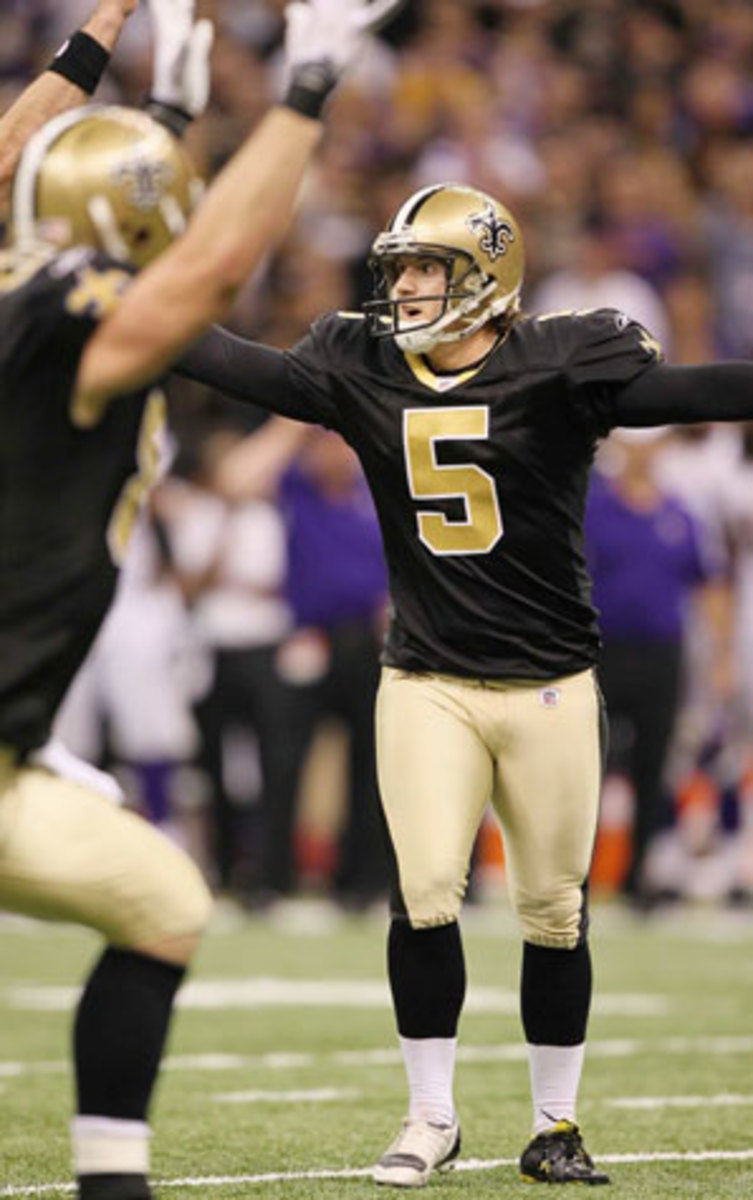
A novel overtime concept: two possessions, most points wins
In the NFL's version of overtime, too much rides on heads or tails. Nothing should ride on heads or tails. If the league insists on making a game of chance part of a game of overtime, it should at least go Rock, Paper, Scissors. That's entertainment.
The current rule is unsatisfying. Bust heads for 60 minutes and end up even. Call heads correctly in the OT coin flip, end up winning 59.8 percent of the time. Heads or tails is more important than effort or talent.
The Competition Committee will propose its solution at the league meetings later this month. It's no better than what they have now. Here's the idea: Each team is guaranteed a possession in overtime, unless the team that wins the flip scores a touchdown. In which case, the game is over. Just like now. If approved, that change would happen in next year's playoffs.
Or it could do what I suggest.
Each team has one possession.
Most points wins.
If it's a tie, it's a tie.
Besides being brilliant, this might force coaches interested in winning to take a few chances. NFL coaches are as risk-tolerant as insurance companies. They make a librarian look like a Wallenda. With my system, they'd be forced to make some interesting decisions:
You win the flip and drive to the other guy's 2-yard line. Fourth down. Kick or go? That's a no-brainer now. Kick, win. The committee's proposed system does force a choice. But it's still way too flip-winner-take-all. My system would ask a coach, "How much do you really want to win?''
If Team A goes for it and scores, its defensive coordinator suddenly has a bigger edge than man over mouse. If Team A goes for it and doesn't score, the advantage swings, but only slightly. It's not 35 yards and kick a field goal. It's about 65 yards.
In debating possible changes to the current overtime system, SI.com's Peter King received an e-mail from a football analyst named Brian Burke. Burke argued that if Team A scored on its first possession, Team B would never punt. "The second team will have 33 percent more downs,'' Burke wrote.
Why? Is there something in the NFL Magna Carta that says an offense can only use three downs? I've argued this forever. A team that trails in a game should not punt. Every possession should be four downs.
There are conditions, sure. You have to be outside your 30-yard line. It can't be fourth-and-ridiculous. If you play defense like the '85 Bears and offense like The Bad News Bears, you might want to reconsider. Beyond that, why not use all four downs? God and Y.A. Tittle gave you four downs to go make a first down. Let 'er rip.
Think of the options that would expand on offense. If third-and-eight is the new second-and-eight, you're not throwing that 8-yard Out all the time, are you? Think of the mind-messin' you could achieve. Defensive coordinators live and breathe on tendencies. If you break out a four-down offense, say goodbye to tendencies. There wouldn't be enough Valium in the world to calm that Defensive coordinator's nerves.
People have suggested a full extra quarter. They've urged a system similar to what colleges use. That's no good. The NFL doesn't like it when its games leave the three-hour box. Advertisers aren't crazy about it. Owners would have to pay more to keep the lights on, without getting more beer money, since the taps close at the start of the fourth quarter. Ask fans in cold weather cities how much they'd enjoy a fifth quarter in December. Ask their frozen feet.
Maybe members of the Competition Committee didn't give my system any thought. Maybe they've been too busy conjuring ways to reduce their players' net worth. Whatever, what they've proposed isn't different enough. Two possessions, each team gets one. Most points wins.
Is that hard?





